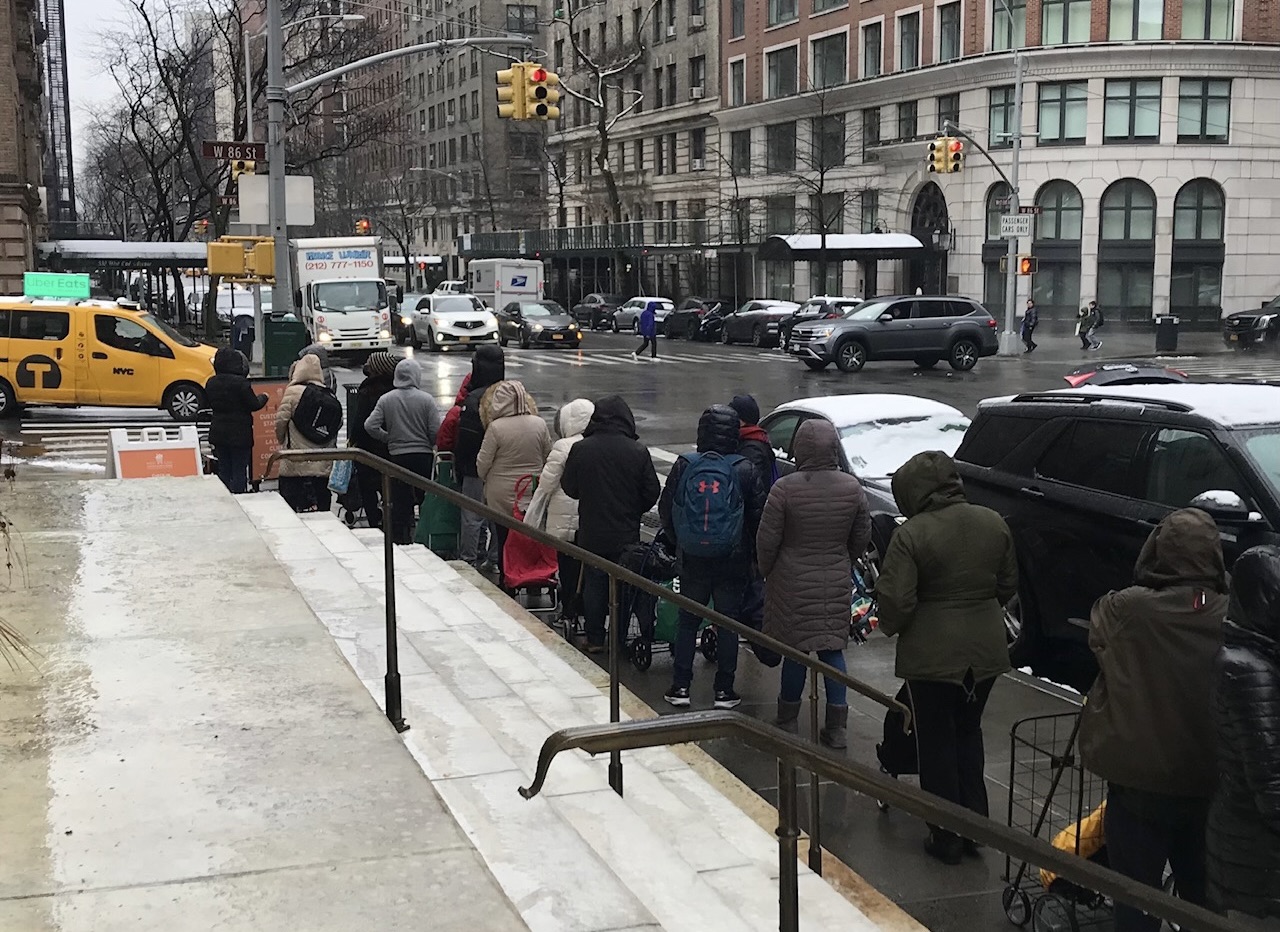
By Margie Smith Holt
With federal COVID-era emergency food funding expiring March 1, food pantries across the country are bracing for a dramatic increase in the number of Americans in danger of going hungry.
“There was a temporary boost to SNAP (Supplemental Nutrition Assistance Program) called the ’emergency allotments’ that happened during the pandemic. And they’ve been ended,” says Greg Silverman, CEO of the West Side Campaign Against Hunger (WSCAH), in an interview with WSR. “We’re 50% busier than we were during the peak of the pandemic. And we know what’s going to happen when people have their benefits cut further. They’re going to come to pantry. More and more people are going to need to come to pantry as their social net frays even further.”
WSCAH serves roughly 75,000 customers, and they’re just one of many emergency food providers across New York City. The cuts will affect some three million people in New York state alone, Silverman says, and they’ll touch everyone: kids, working-age adults, seniors, veterans. Some seniors, he says, will see their benefits go from $281 to $23 a month.
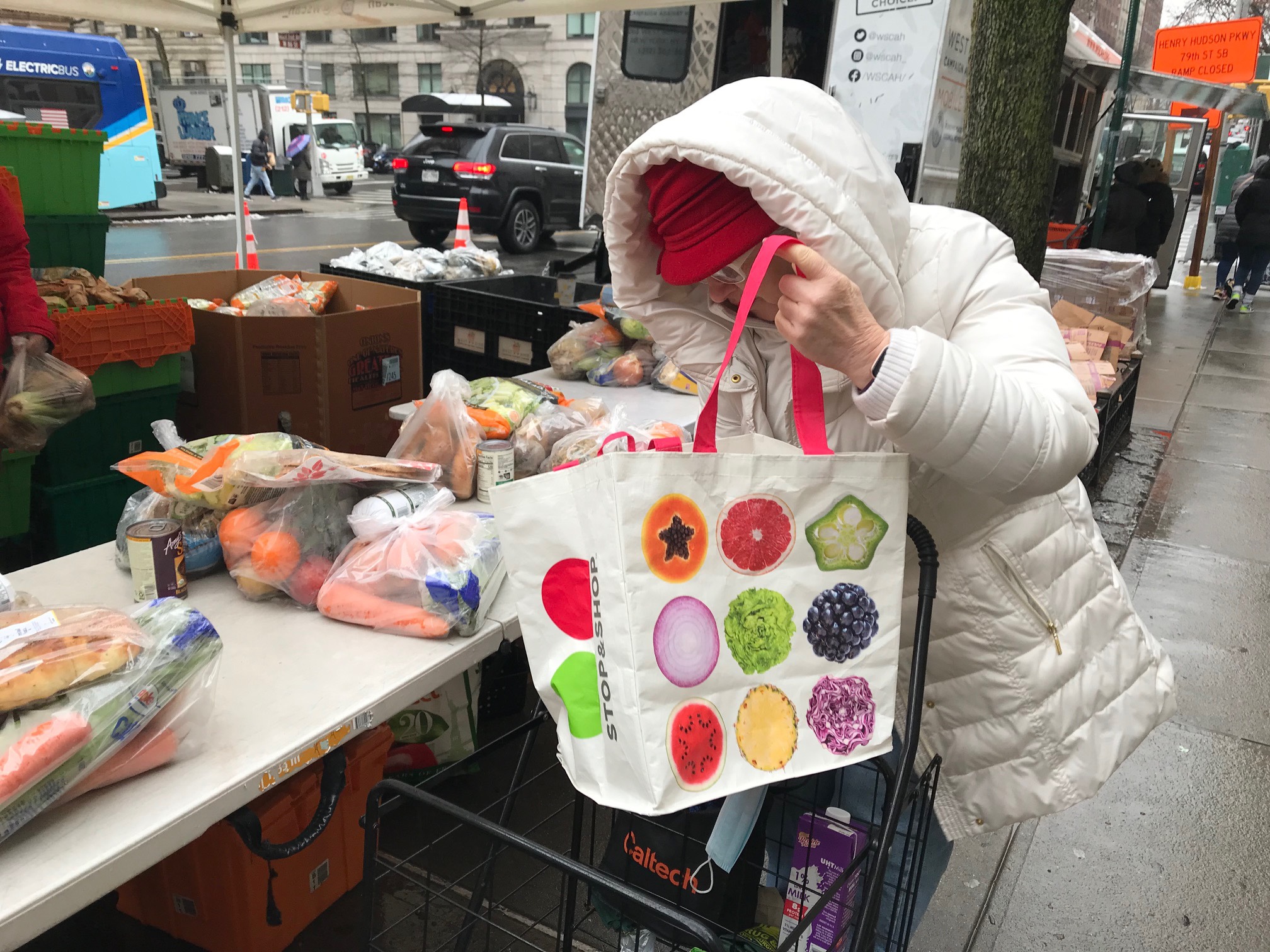
“I have a pension. It’s not enough,” said retiree Raisa Voll, as she waited in line in a wet drizzle Tuesday for bread and fresh produce from WSCAH’s pantry at 86th Street and West End Avenue. Food from the pantry helps her survive, she said.
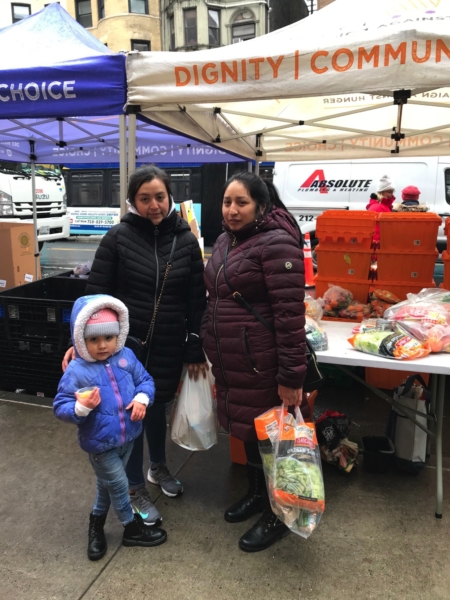
Lorena Cando from the Bronx was shopping for a family of 10, including six children. “It’s a little bit complicated because there’s not a lot of employment opportunity,” she said. She’s been relying on the pantry for three years. “I do get a lot of help from them … The food is good. The quality is good.”
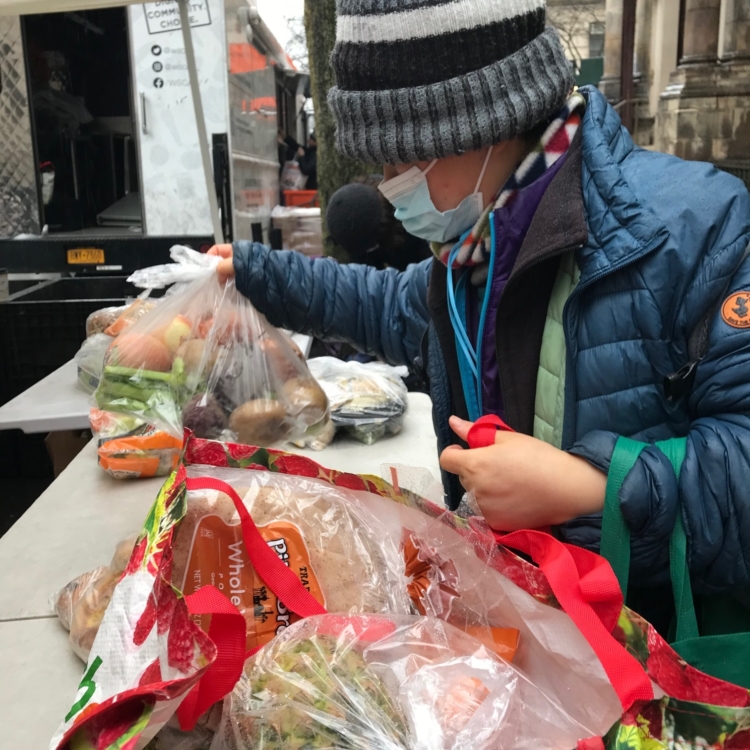
“I like the fruits and vegetables,” said Saul Cha of Manhattan, also shopping for a family. “That means I can save the budget.”
“We’re spending triple the amount we spent last year on food.”
“When the safety net gets smaller at these tough times, it’s devastating,” says Silverman. “We’re seeing increased need, more customers, cost of food going up for customers—and also for the organizations. We’re spending triple the amount we spent last year on food, and we’re just one organization. So what you’re seeing is, the charity sector being asked to do more with less. And the charity sector cannot be the sole safety net. We’re a core part of making change and supporting community members, but the public sector—the government at a city, state, and federal level—must lead the charge.”
Silverman says WSCAH is advocating at a city and state level—calling on city government to bring food resources to the emergency feeding sector and pushing for state cuts to be reinstated. They’re also calling on their “amazing community” of supporters on the Upper West Side to donate and volunteer.
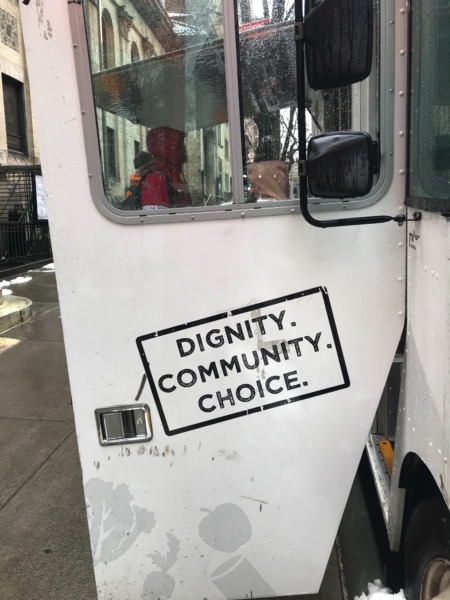
“This is a great program,” said Gina Clemente, one of the many volunteers also braving Tuesday’s miserable weather to serve WSCAH clients. She got involved simply because of “a desire to do something decent in the world. That’s it. Nothing more complex or philosophical than that. Just a desire to do something decent when probably decent acts are in need.”
“People’s money and people’s time are incredibly valuable. We’re not going to can drive our way out of this,” says Silverman. “We all want the pandemic to be over. But the truth of the matter is, for people in need in New York City, things have never been worse. And I think that we’re all trying to put the blinders on to sort of move on. Everyone has some individual trauma, or collective trauma, related to the pandemic. But it’s not over. Especially for people who are struggling with food insecurity. And we have to wake up to that and actually realize we have more work to do. And we can do it. We got through a pandemic. We can make sure New Yorkers have the healthy food they need. We just have to come together.”
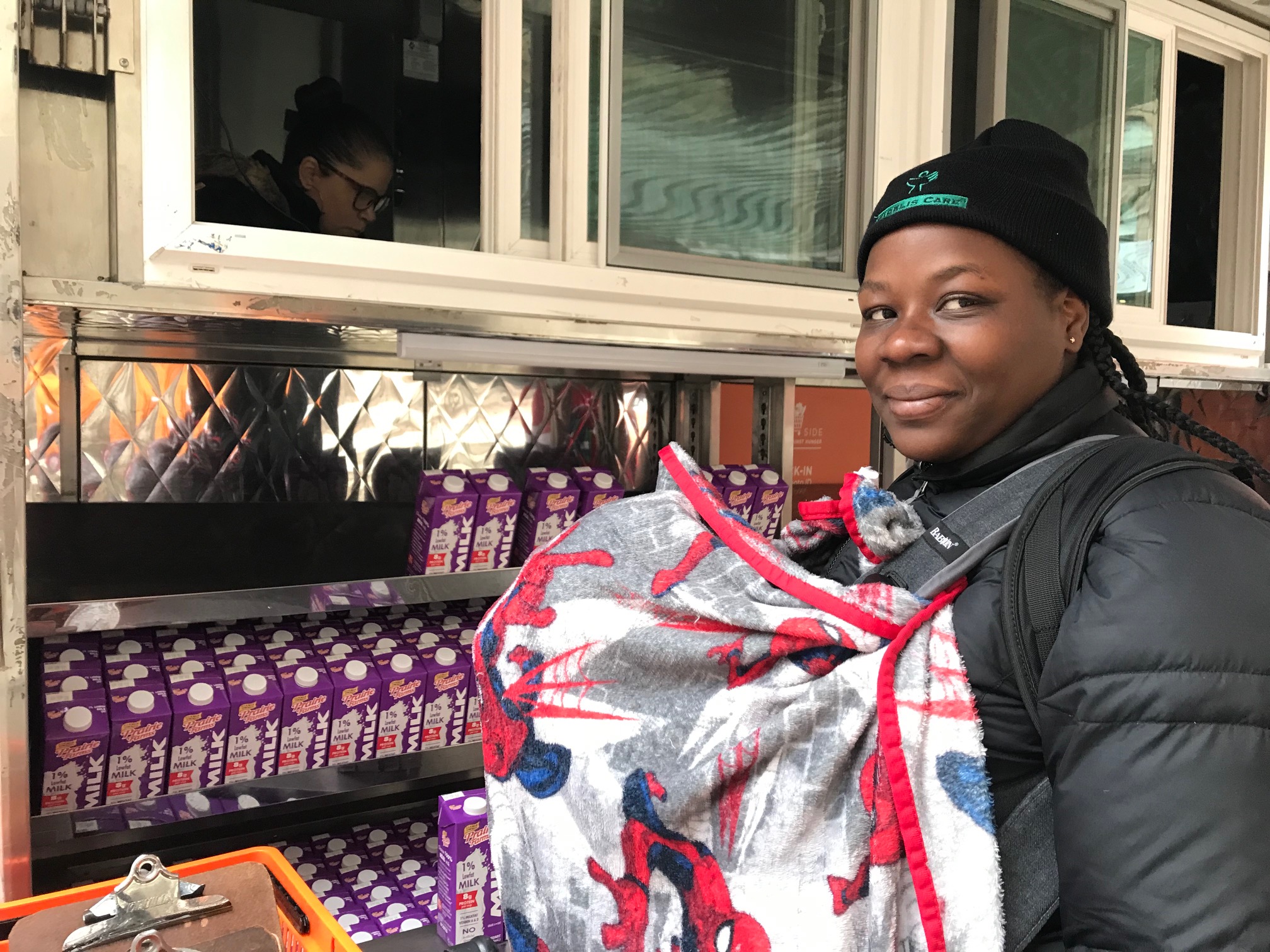 In terms of volunteer opportunities, people may contact WSCAH Volunteer Coordinator, Steven Yee, at syee@wscah.org or (646) 484-0371. There is more info about the volunteering program online as well.
In terms of volunteer opportunities, people may contact WSCAH Volunteer Coordinator, Steven Yee, at syee@wscah.org or (646) 484-0371. There is more info about the volunteering program online as well.
For donations, please donate online using this link. People may also send a check to WSCAH’s address — 263 West 86th Street, New York, NY 10024.



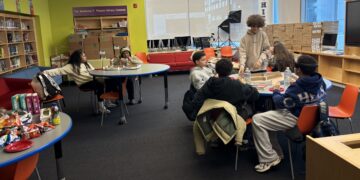
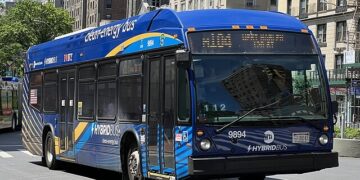




Thank you WSR for this timely (and sobering) piece. Brings the headlines to life for local people, and offers us some actions we can take to help.